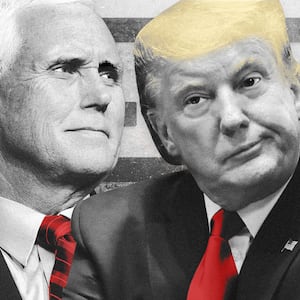The Jan. 6 Committee will receive White House documents that former President Donald Trump desperately tried to keep out of investigators’ hands after the Supreme Court ruled Wednesday that Trump couldn't exert executive privilege over Joe Biden's administration.
On Wednesday evening, the Supreme Court ruled 8-1 that it would not block the National Archives from turning over hundreds of documents to the Select Committee investigating the violent attack on the Capitol building.
That ruling allowed the Jan. 6 Committee to begin examining internal memos, calendars, and communication logs detailing to what extent—if any—Trump and his advisers were involved in fomenting a riot that briefly interrupted the peaceful transfer of power for the first time in American history.
At 8:30 p.m., the committee tweeted that it had “already begun to receive records that the former President had hoped to keep hidden.”
“The Supreme Court’s action tonight is a victory for the rule of law & American democracy,” the panel said.
All but one justice on the nation’s highest court decided against intervening: Clarence Thomas, a stout political conservative. Although he was the single dissenting vote, Thomas elected not to explain himself.
In the brief opinion issued by the court, Chief Justice John Roberts said the Judicial Branch would not intervene to stop the Jan. 6 Committee’s request for documents from the National Archives. But he stopped short of supporting an appellate court’s ruling that the former president could not assert “executive privilege” after leaving office.
Meanwhile, Justice Brett Kavanaugh, ruled against the former president who appointed him this time, but he asserted that, generally speaking, ex-presidents should still be able to keep White House documents secret—for a time.
“It could be argued that the strength of a privilege claim should diminish to some extent as the years pass after a former President’s term in office,” Kavanaugh wrote.
This legal battle was essentially about competing executive privilege between a current and former president, given that Biden had approved the congressional panel’s request for Trump White House records from the National Archives. That agency is now free to turn over records to the panel.







